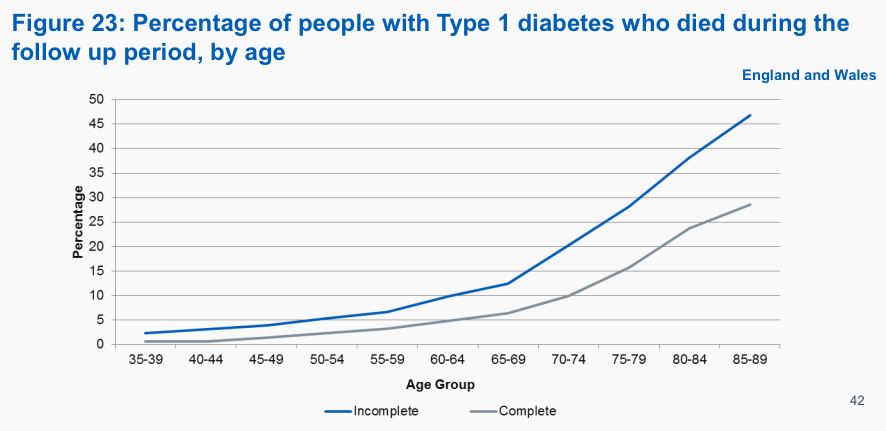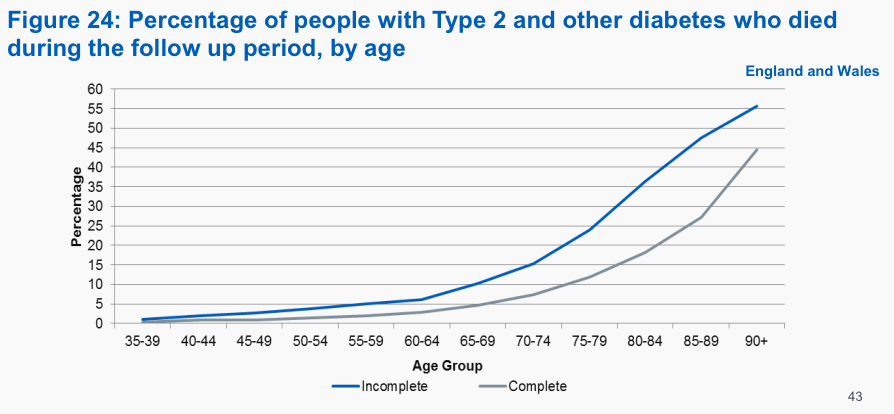Regular diabetes checks lower mortality rate by 50%

Regular annual diabetes checks can halve mortality rates for diabetic patients, according to new data from the National Diabetes Audit 2015/16.
It was shown that people with diabetes who have had NICE-recommended annual diabetes checks for blood glucose, cholesterol and blood pressure regularly in the preceding seven years are half as likely to die from the condition than those who have not.
As a result, the report urged all providers of diabetes to ‘monitor poor attendance and make extra efforts to re-engage non-attenders’ of annual diabetes health checks.
Related Article: Be alert to pancreatitis in patients using GLP-1 weight-loss drugs


Source: NHS Digital, National Diabetes Audit Complications and Mortality 2015-2016
The audit, published by NHS Digital, looked at complications and mortality associated with type 1 and type 2 diabetes in patients aged 35-74 years.
Nearly 364,000 people with diabetes aged 20 and over were studied to see how completing a care process of 21 checks of HbA1c, blood pressure and serum cholesterol was associated with outcomes.
Around 75% of type 2 diabetes patients completed all of the checks, compared to just 59% of type 1 patients. The rest of the groups completed fewer than 12 checks.
The patients and their care process completion were tracked over a period of seven years between the 2006/07 and 2012/13 audit periods. A follow up period was used to identify if the patient died during 2013-14 or 2014-15.
Related Article: Low-energy diet improved eating disorder symptoms in patients with type 2 diabetes
The audit says: ‘The analysis cannot determine causality. For example, the findings could be due to such factors as well organised accessible services, more frequent care planning consultations or an association between poor attendance and hazardous behaviours.’
It was found that diabetes increases the risk of death at all ages for both men and women, compared to the general population. However, younger people are at greater relative risk of premature death than older people.
According to the 2013/14 audit, diabetes patients were 32% more likely to die prematurely than their peers in the general population.
The additional risk of death was 128% higher than the wider population for people with Type 1 diabetes, and 28% higher for those with Type 2 diabetes.
Related Article: Wales diabetes prevention programme cuts risk of developing type 2 diabetes by nearly a quarter
The analysis also recommends that nurses are:
- Aware of the correlation between regular review and good long term health.
- Fully recognise the high cardiovascular risks of all types of diabetes, which should be regularly assessed and managed using diet, exercise, weight management, early sustained glucose control, blood pressure and statins.
- Ensuring that cardiovascular risk reduction especially includes people of working age and younger (about 1 in 3 people with diabetes) as they have the greatest relative risks, including premature death.

See how our symptom tool can help you make better sense of patient presentations
Click here to search a symptom


Regular annual diabetes checks half mortality rate for diabetic patients, according to new data from the National Diabetes Audit 2015/16.



